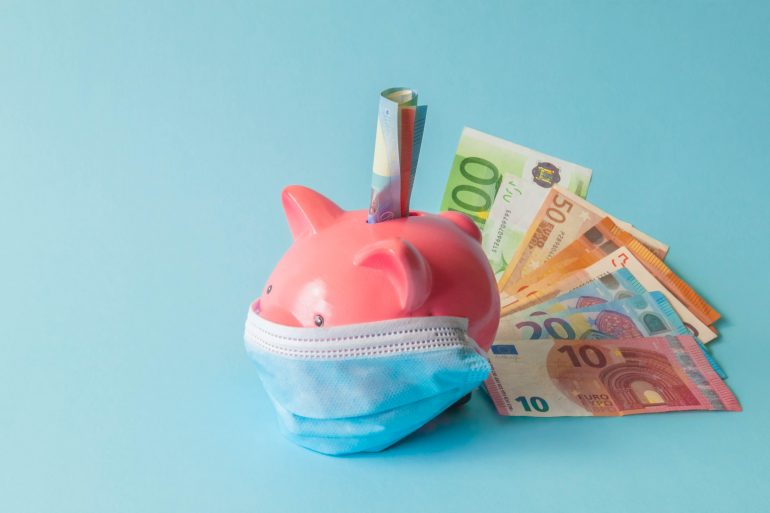Believe it or not, according to the Dutch National Bank (DNB), in 2020 the Dutch managed to hoard an astounding 42 billion euros extra in savings and checking accounts, because they could not go on vacation and shop due the lockdowns. This is twice as much as in 2019, and averages about 5,000 euros in savings per household.
By the year’s end, Dutch households had a total of 487 billion stuffed away in their bank accounts. Normally, these savings would have been spent on vacations and Christmas shopping, but not in 2020. Many households instead spent money on fixing up their homes (interior designers have been working over-time), home repairs (try to find an electrician or carpenter these days!) and big-ticket improvements such as installing solar panels.
According to Carlijn Prins, economist at the Rabobank, the corona measures have changed Dutch consumer behavior drastically. Although cafes, hotels and restaurants have been shut since December, consumers are buying more products online than ever before, using payments methods such as Ideal, credit card, pin and bank transfers.
The minister of Economics, Wopke Hoekstra, who is up for re-election next month, optimistically foresees consumers storming cafes and stores once the corona restrictions have been lifted. However, a report by the Dutch bureau of statistics CBS indicates that folks might be keeping their purse strings tight. More than half of people are saving up for major economic setbacks. Moreover, there are plenty of people, such as entrepreneurs, who have been forced to dig into their savings to keep their businesses going during the enforced closures.
The truth of the matter is that the extent and the economic fallout of the crisis are not yet clear. According to a report dated 23 February, the Dutch province that has been hardest hit by the crisis is Noord-Holland, where the economy shrunk by 7% in 2020, followed by Groningen with 5%. On an average, in 2020 the Dutch economy declined by 3.7%.
In many regards, corona has changed the world economy forever. The pandemic has catapulted developments such as remote working, e-commerce and automation from the marginal to the standard. Once the lockdown is over, consumers will not be returning to their old spending habits. For those who had computer-based office work, they will most likely will be working remote at least a couple days of week, if not more. They will be spending less on train travel, take-away coffees and formal clothing. For companies, this is also a win-win deal. They will save on expensive office space, utility costs, office cleaning, employees’ travel expenses and office supplies. Computer-based office work will give employees the option to live in more remote areas of the country, where house and rent prices are much cheaper, thus saving on living expenses.
In the long term, this picture might look rosy, but for the near future, the economic situation looks rather bleak. According to a recent McKinsey report “The future of work after COVID-19”, the alarming news is that while many people have been able to work from home, approximately 25% of all jobs have been made redundant. This means that many will have to retrain and switch occupations. Until now the Dutch government has paid 12.4 billion to companies to continue paying their employees’ salaries, but once the government’s spending frenzy is over, most likely companies will have to start laying off personnel. They in turn will have to start eating into their savings. The good news is that for those who are willing to retrain, the crisis has generated a plethora of new jobs and occupations, especially in the sciences, technology and engineering sectors. If we are lucky, just like after the last world-wide pandemic a hundred years ago, prosperous times are on their way and we’re headed towards our own Roaring Twenties.
Written by Benjamin B.Roberts
